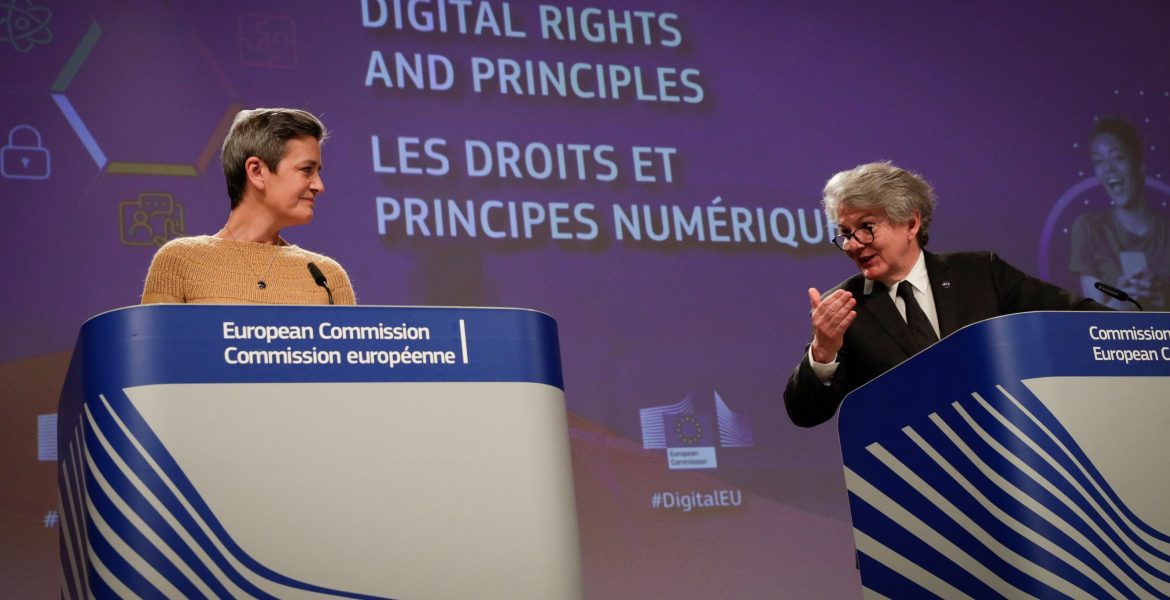The Commission is proposing to the European Parliament and Council to sign up to a declaration of rights and principles that will guide the digital transformation in the EU.
The draft declaration on digital rights and principles aims to give everyone a clear reference point about the kind of digital transformation Europe promotes and defends. It will also provide a guide for policy makers and companies when dealing with new technologies. The rights and freedoms enshrined in the EU’s legal framework, and the European values expressed by the principles, should be respected online as they are offline. Once jointly endorsed, the Declaration will also define the approach to the digital transformation which the EU will promote throughout the world.
Executive Vice-President for a Europe Fit for the Digital Age, Margrethe Vestager, said: “We want safe technologies that work for people, and that respect our rights and values. Also when we are online. And we want everyone to be empowered to take an active part in our increasingly digitised societies. This declaration gives us a clear reference point to the rights and principles for the online world.”
Commissioner for the Internal Market, Thierry Breton, said: “We want Europeans to know: living, studying, working, doing business in Europe, you can count on top class connectivity, seamless access to public services, a safe and fair digital space. The declaration of digital rights and principles also establishes once and for all that what is illegal offline should also be illegal online. We also aim to promote these principles as a standard for the world.”
Reaction came from Joakim Reiter, Chief External and Corporate Affairs Officer at Vodafone Group, who told this site, “We welcome the Declaration today which outlines a number of measures designed to create a supportive and inclusive digital environment that Europeans can trust and benefit from. Specifically, we commend the principle that everyone, everywhere in the EU, should have access to affordable and high-speed digital connectivity. This reinforces the EU’s Digital Decade ambition to ensure gigabit for everyone, and 5G everywhere, by 2030, of which connectivity infrastructure is a key enabler. To rise up to this challenge, connectivity infrastructure will require significant investment in order to ensure long-term development and sustainability.”
“It is positive to see the European Commission support the development of adequate frameworks that ensure all market actors who benefit from the digital transformation assume their social responsibilities and make a fair and proportionate contribution to the costs of public goods, services and infrastructures. With public and private sectors working together at both national and EU level, to maximise investment opportunities and deploy vital connectivity services at speed, we can ensure Europe’s digital transformation is realised.”
The draft declaration covers key rights and principles for the digital transformation, such as placing people and their rights at its centre, supporting solidarity and inclusion, ensuring the freedom of choice online, fostering participation in the digital public space, increasing safety, security and empowerment of individuals, and promoting the sustainability of the digital future.
These rights and principles should accompany people in the EU in their everyday life: affordable and high-speed digital connectivity everywhere and for everybody, well-equipped classrooms and digitally skilled teachers, seamless access to public services, a safe digital environment for children, disconnecting after working hours, obtaining easy-to-understand information on the environmental impact of our digital products, controlling how their personal data are used and with whom they are shared.




